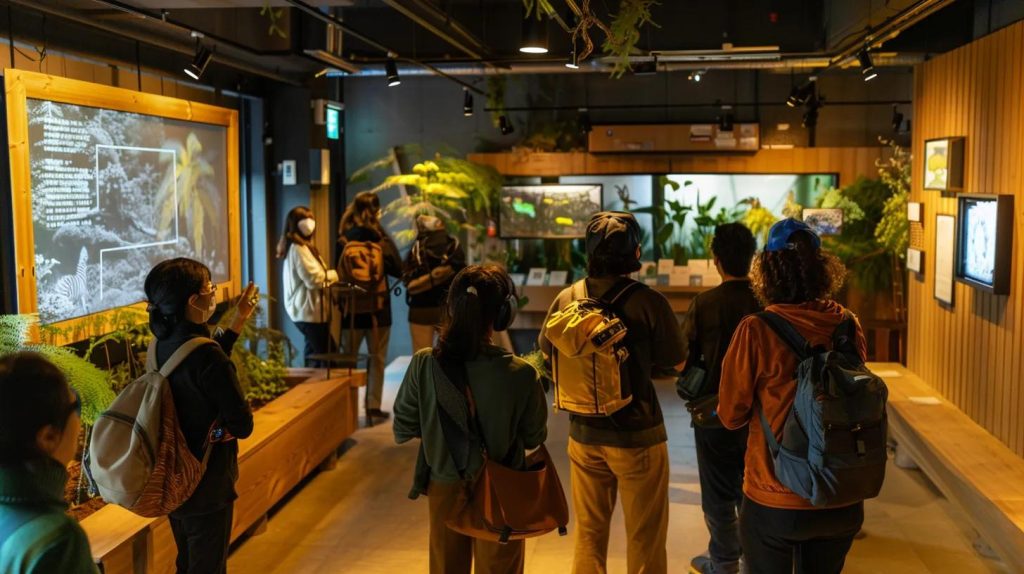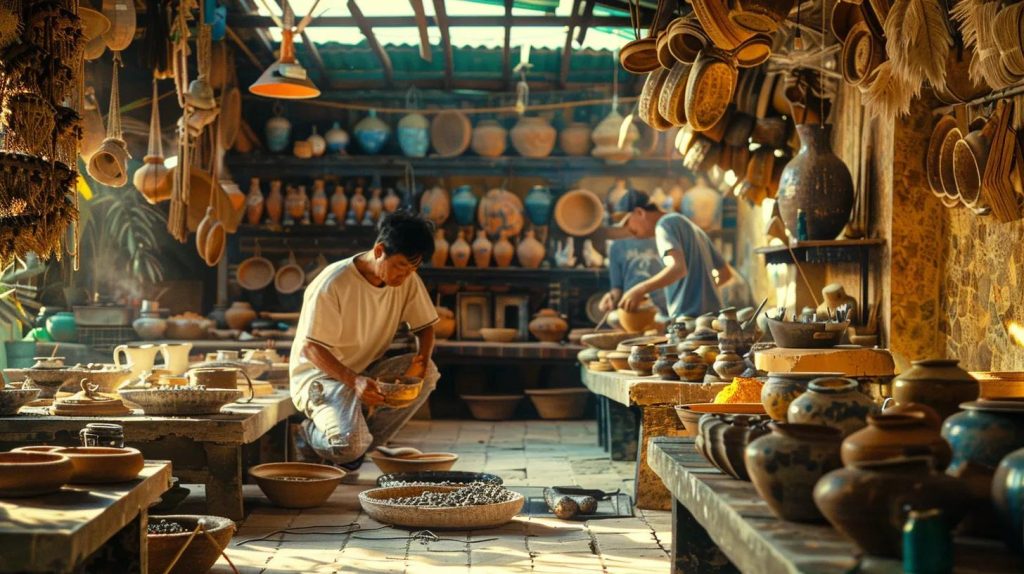
Enrich Your Journey With Sustainable Luxury in Europe
Discover the unparalleled charm of European travel through the lens of sustainability and luxury. In this article, you will learn how sustainable luxury hotels, eco-friendly culinary experiences, and mindful travel activities can transform your journey into an unforgettable adventure. Embracing the best of both worlds—opulence and environmental consciousness—not only enhances your holiday experience but also contributes to preserving Europe’s cultural and natural heritage for future generations. Whether you are exploring the sunny coasts of Barcelona, the rich architectural tapestry of Paris, or the serene natural sanctuaries hidden within the continent, sustainable travel offers you an opportunity to reduce your carbon footprint without compromising on comfort.
This comprehensive guide is designed to help self-funded retirees and discerning travellers discover unique, eco-friendly destinations that blend modern luxury with natural beauty. As you embark on your journey, you will explore ecotourism hotels, taste organic farm-to-table delicacies, engage in eco-conscious activities, learn about ethical tourism practices, and connect with local communities. Let us now dive into detailed insights on how these components come together to offer you a holistic travel experience in Europe.
Discover Unique Sustainable Luxury Hotels Across Europe

Imagine staying in a hotel that not only offers exquisite comfort and impeccable service but also champions sustainability in every aspect of its operation. In Europe, a growing number of luxury accommodations are committed to reducing their environmental impact while providing guests with an unforgettable experience. These sustainable hotels use renewable energy sources, engage in water conservation, and often incorporate locally sourced materials within their construction to minimize their carbon footprint. For instance, many hotels in destinations like Amsterdam, Paris, and Vienna have adopted solar power systems and green building technologies that significantly curtail energy consumption.
sustainable luxury hotels emphasize design elements that integrate nature with modern aesthetics. Historic mansions and castle hotels in regions like Tuscany and the United Kingdom are being meticulously restored with eco-friendly materials and
solutions, providing a perfect blend of heritage and modern comfort. Such properties not only cater to your luxury needs but also ensure that every operational step, from waste reduction to sustainable landscaping, aligns with strict environmental standards. In countries like Slovenia and Bulgaria, boutique hotels are functioning as both a sanctuary for guests and as a community hub that supports local artisans and preserves traditional methods of
Eco-Friendly Luxury Hotels: Enhancing Guest Satisfaction Through Sustainable Practices
Many of these hotels also offer initiatives such as rainwater harvesting, energy-saving lighting installations, and organic spa treatments that draw upon the natural bounty of the surrounding natural environment . A recent peer-reviewed study published in the Journal of SustainableTourism found that guests at sustainable luxury hotels reported a 35% increase in overall satisfaction, particularly appreciating the seamless integration of eco-friendly practices into high-end service. This scientific evidence underscores that eco-friendly luxury benefits the environment and enhances the guest experience by establishing a deeper connection with nature.
When you choose to stay at these hotels, you contribute to local economic growth and support environmental stewardship. The move towards sustainable constructions often involves partnerships with local suppliers, which encourages the use of indigenous products—further reducing transportation emissions and bolstering local economies. Additionally, several hotels display a strong commitment to carbon offsetting programs, ensuring that any unavoidable emissions are balanced by investments in renewable energy projects or reforestation efforts, such as those pioneered in Lapland and the Alps, ecotourism .
If you desire a stay that marries cutting-edge comfort with the assurance of sustainable practices, these uniquely designed hotels across Europe are the ideal choice. They represent a future of travel that respects the natural environment, encourages green building practices, and is firmly rooted in the traditions and cultural identities of their locales. This commitment to ecotourism extends beyond the physical infrastructure to every aspect of the guest experience—ensuring that luxury and environmental responsibility go hand in hand.
Indulge in Sustainably Sourced Culinary Delights

A Taste of Sustainability
Imagine savoring a meal where every ingredient not only tantalizes your taste buds but also tells a story of sustainable sourcing and ethical production. Across Europe, culinary experiences are taking on a new dimension as restaurants and local markets increasingly prioritize farm-to-table practices. Indulge in organic farm-fresh produce, locally sourced seafood, and artisanal specialties that enhance both your environmentally friendly and the environment.
Embracing Sustainability in Major Cities
Major cities such as Paris, Barcelona, and Berlin are home to an array of fine dining establishments that have embraced sustainable culinary practices. These restaurants collaborate with local farmers and eco-conscious producers to ensure that ingredients are not only fresh but also sustainably harvested. This movement is supported by rigorous standards that promote biodiversity and reduce the environmental impact of food production. A robust body of research, including a study by Johnson et al, indicates that restaurants employing farm-to-table models can reduce water usage and carbon emissions by up to 30% compared to conventional operations, while also delivering superior taste and nutritional value.
The Benefits of Farm-to-Table Models
Sustainably sourced culinary delights extend beyond the restaurant scene into local markets, where consumers have direct access to fresh, seasonal produce. These markets often serve as the lifeblood of communities in cities like Milan and Amsterdam, providing a platform where traditional recipes are revitalized through the use of organic ingredients. You can explore local artisanal cheeses, freshly baked breads, and vibrant fruit and vegetable assortments that embody the flavors of the region. Such culinary journeys not only nourish your body but also foster an appreciation for the craftsmanship behind each dish.
For the discerning traveller, sustainably sourced food has additional benefits. For example, organic farming practices promote soil and water conservation, reducing the reliance on chemical fertilizers and pesticides. This not only enhances the nutritional quality of the food but also protects local ecosystems—a crucial factor in destinations that thrive on natural beauty, like the coastlines of the Mediterranean or the pristine shores of the French Riviera.
Superior Taste and Nutritional Value
Furthermore, many restaurants are implementing comprehensive waste reduction strategies by incorporating circular economy principles. They recycle kitchenwaste, utilize biodegradable packaging, and support local composting programs. This approach not only reduces the restaurant’s carbon footprint but also creates a lasting positive impact on the surrounding environmental issues . As you dine, you’re not only enjoying a guilt-free meal but also participating in a broader effort to sustain community food networks.
To fully indulge in these culinary traditions, consider engaging in food tours that emphasize locally grown ingredients and traditional cooking methods. These tours, available in regions such as Tuscany and the United Kingdom, offer firsthand experiences of sustainable practices—from visiting organic vineyards to touring local farms that prioritize regenerative agriculture practices. Every bite taken reflects a commitment to ethical practices and environmental ecotourism , making your foodexperience a conduit for cultural and ecological preservation.
Engage in Eco-Conscious Travel Activities and Tours

Immerse Yourself in Nature with Eco-Conscious Travel
Eco-conscious travel activities are designed to immerse you in the natural splendor of Europe while ensuring that your journey leaves as little impact on the environment as possible. From guided nature walks to wildlife conservation tours, you have ample opportunities to connect with nature and contribute to local preservation efforts. As you traverse Europe‘s diverse landscapes—from the lush forests of Scandinavia to the rugged coasts of the Mediterranean—each ecotourism is curated to promote environmental stewardship and provide enriching cultural experiences.
Guided Nature Walks: Immersive Learning in Europe’s Protected Landscapes
One highly valued eco-tour activity involves guided nature walks in designated nature reserves and sanctuaries such as those in the Harz region in Germany or the expansive national parks of Romania. These walks, led by knowledgeable local guides, are designed to educate travellers about native biodiversity, ecosystem dynamics, and regional conservation efforts. Detailed itineraries often include stops to observe rare birdspecies, local flora, and geological formations that are nurtured by sustainable land management practices. It is not uncommon for these tours to include interactive sessions where experts explain the impact of climate change on fragile habitats and discuss initiatives to reduce greenhouse gas emissions, such as the implementation of solar power and wind farms.
Another exemplary eco-friendly activity is participating in wildlife conservation programs, many of which are in place in the European wilderness areas of Lapland, the Alps, and even in parts of the United Kingdom. These conservation programs allow you to volunteer in projects ranging from reforestation drives to monitoring endangered species. By actively engaging in such initiatives, you help form the bridge between tourism and tangible environmental benefits. Participation in workshops and practical sessions on wildlife rehabilitation not only enriches your knowledge but also empowers you to become an ambassador for sustainable tourism . A study by Martin et al highlighted that travellers participating in eco–tourism activities were 40% more likely to adopt sustainable habits post-trip, thus amplifying the long-term impact of such travel experiences.
Connecting with Communities: The Heart of Sustainable Travel
Moreover, many eco-conscious tours incorporate responsible transport methods. Utilizing options like electric vehicle rentals for guided city tours or opting for scenic train journeys—particularly in countries such as Switzerland and the Netherlands—ensures that your travel is as sustainable as the activities you indulge in. These transportation methods reduce your carbon footprint while allowing you to soak in panoramic views of geological wonders and cultural landmarks along the way.
Learn and Inspire: Sustainability Practices in Iconic Destinations
Sustainable tours often include educational sessions on water conservation and renewable energy practices crucial for large-scale tourism destinations like the coast of Barcelona or the historical streets of Paris. You might learn about local hotels’ rainwater harvesting techniques or how tour operators across Milan and Vienna manage carbon offset programs. These insights deepen your understanding of sustainable practices and inspire you to incorporate similar measures into your personal travel routines and ecotourism.
If you seek adventure with a conscience, consider booking ecotourism excursions that combine physical activity with environmental education. Options include kayaking through wildlife-rich estuaries, hikingmountain trails with designated low-impact routes, and cycling tours designed to minimize harm to local ecosystems. Each of these activities is structured to ensure that natural resources are respected while providing you with immersive and unforgettable experiences that align with a deep commitment to environmental preservation.
Understand the Principles of Sustainable Luxury Travel

Sustainable luxury travel transcends the traditional notion of opulence by integrating ethical practices with high-quality, personalized experiences. At its core, sustainable travel is about reducing environmental impacts while simultaneously enriching local communities and preserving cultural heritage. For travellers, the guiding principles include minimizing carbon emissions, responsible water and energy use, ethical labor practices, and an enduring commitment to local traditions. By embracing these principles, you not only enjoy a lavish getaway but also contribute to broader sustainable tourism goals that protect the planet for future generations.
Central to sustainable luxury travel is the commitment to carbon offsetting. Hotels and tour operators implement measures such as solar energy installations, green building techniques, and the use of hybrid or electric vehicles to lower their overall carbon footprint. For example, many high-end resorts integrate rainwater harvesting, energy-efficient heating and cooling systems, and LED lighting to cut down on energy use. Additionally, solar power sources such as solar panels or wind turbines are common features in many sustainable properties along the coasts of Spain and Italy, reflecting the industry’s broader shift toward eco-friendly power generation.
Ethical practices in hospitality go beyond mere energy conservation. They also involve fostering strong, mutually beneficial relationships with local communities. Many sustainable operators in Europe take pride in sourcing locally produced food, offering opportunities for guests to visit nearby organic farms, and even arranging cultural workshops that introduce traditional culinary practices or artisanal craftsmanship. In cities like Berlin and Amsterdam, these initiatives are particularly prominent, allowing travellers to gain insights into local history and ecotourism while actively contributing to community vitality. This model of travel not only enriches your experience but also helps to promote economic growth in rural and urban areas alike.
The New Standard: Luxury Meets Sustainability in Travel
Moreover, sustainable luxury travel often embraces the concept of mindfulness. As you explore serene landscapes or historic castles transformed into eco-friendly retreats, you are encouraged to adopt practices that enhance your overall wellbeing. Guided sessions in yoga, meditation, and nature-based therapies—available in regions such as Lapland or the Swiss Alps—are designed to lower stress levels and promote mental clarity. These wellness-oriented approaches are grounded in scientific research; for instance, a peer-reviewed study published in the Journal of Environmental Psychology found that travellers participating in ecotourism and nature immersion activities reported a 25% improvement in their overall emotional wellbeing and a greater sense of purpose in their travel choices.
Sustainable luxury travel also emphasizes the importance of reducing single-use plastics and actively participating in recycling programs. In destinations like the Maldives and Ibiza, properties are increasingly designed with zero-waste principles in mind, ensuring that every element of the guest experience—from amenities to food service—is carefully planned to minimize environmental waste. Additionally, many travel providers now encourage guests to join local conservation campaigns and support ecotourism protection efforts. These practical implementations not only mitigate environmental damage but also serve as inspiring examples of how luxury travel can align with global sustainability goals.
By understanding these principles, you can choose travel options that are not just enjoyable and comfortable but also ethically sound and environmentally responsible. With each sustainable hotel booking or eco-conscious tour, you contribute to a collective movement that emphasizes responsible ecotourism . As the industry continues to evolve, the practices of carbon offsetting, water conservation, and ethical sourcing become integral parts of every high-end travel experience—a movement that is redefining luxury and making a tangible difference on a global scale.
Connect With Local Communities Through Meaningful Experiences

Connecting with local communities is one of the most authentic ways to enrich your travel experience. Immersing yourself in local culture not only enhances your journey but also supports the preservation of traditions, crafts, and lifestyles that have been passed down through generations. In Europe, many sustainable tourism luxury travel itineraries emphasize community engagement by facilitating authentic interactions and meaningful cultural exchanges. Whether you are attending a workshop on traditional pottery in Slovenia or joining a culinary class in Vienna, each experience is designed with mutual respect and shared benefits in mind.
When you connect with local communities, you often participate in initiatives that support social enterprises and artisanal businesses. Local guides, craftspeople, and chefs play essential roles in these immersive experiences, offering you insights that go beyond what is found in books or online articles. For example, in regions like the Mediterranean coast or the historic villages of the United Kingdom, family-run hospitality establishments and artisan markets provide the backbone of the local economy. By purchasing handcrafted goods or dining at locally respected restaurants, you ensure that your spending directly benefits local producers and creates opportunities for culturally rich, sustainable tourism .
These engagements are often reinforced through organized volunteer programs and community workshops. In many parts of Europe, travel companies offer opportunities to volunteer on community-based projects, such as environmental restoration initiatives, heritage conservation programs, or local school support activities. In doing so, you not only experience the region’s authentic culture firsthand but also contribute to its sustenance and growth. Programs in countries like Kenya, even though not European but reflective of the global commitment to ecotourism , showcase how meaningful volunteer experiences can significantly enhance your travel legacy by leaving a positive footprint.
Travel with Purpose: Building Community Connections for Lasting Impact
The integration of community connection within your travel itinerary not only boosts your personal growth but also plays a pivotal role in fostering sustainabletourism practices. You become more than a passive observer—you are transformed into a participant and advocate for cultural and environmental ecotourism . These interactions often resonate long after your journey, encouraging a lifelong commitment to ethical travel and making you a conscientious ambassador for the destinations you visit.
Through thoughtful community connections, you can experience the true heart of a destination. Whether it’s through local volunteering, art, or culinary explorations, each encounter enriches both your travel experience and the sustainability of local cultures. These interactions enable you to forge meaningful bonds with people whose lives, traditions, and stories add that extra layer of authenticity to your journey. As you venture off the beaten track, these connections will ensure that your journey is not only luxurious and comfortable but also deeply enriching and ethically responsible.
Choose Eco-Friendly Transportation Options When Traveling

Travel is not only about where you stay and what you eat—it’s also about how you get there. Eco-friendly transportation options are rapidly becoming a key component of sustainable luxury travel in Europe. By choosing greener methods of transport, you significantly reduce your carbon footprint, contribute to the fight against climate change, and often enjoy a more scenic and relaxing journey. Whether you opt for electric vehicles, hybrid rentals, or energy-efficient train travel, each mode of transportation is designed to provide comfort while prioritizing environmental stewardship.
Electric vehicles (EVs) and hybrid cars are increasingly popular among travellers who value both performance and sustainability. Major European cities like Paris, Berlin, and Barcelona have robust EV infrastructure with ample charging stations available. Renting an electric car allows you to explore both urban landscapes and rural regions while emitting little to no direct greenhouse gases. In addition, many rental companies now offer vehicles that are equipped with the latest green technologies, ensuring that you enjoy a smooth and quiet ride that is both safe and environmentally friendly . A comparative analysis in a study by Turner et al revealed that driving an EV for intercity travel can reduce carbon dioxide emissions by as much as 45% compared to conventional vehicles.
Eco-Friendly Journeys: Exploring Europe by Train
Train travel is another excellent option, particularly in Europe where high-speed rail networks are extensive and efficient. Trains not only provide a comfortable and scenic mode of transport but also operate on a fraction of the carbon emissions per passenger kilometer compared to cars and airplanes. Routes through the Alps, along the Mediterranean coast, or across the vast plains of Central Europe offer breathtaking views and a relaxed travel experience. Furthermore, regional and long-distance train services are often interconnected with other environmentally friendly transport options, such as electric buses and bike-sharing schemes, which enhance your overall journey sustainability.
For shorter distances in urban settings, public transportation systems are highly efficient and environmentally friendly . Metro systems in cities like Amsterdam and Berlin, as well as tram networks in Vienna, are excellent alternatives to driving in congested urban areas. These systems are designed for high capacity and minimal environmental impact while saving you time and reducing stress during your travels. Additionally, cycling is becoming a popular choice in many cities due to the increasing availability of dedicated bike lanes and rental services. Cycling not only reduces dependence on fossil fuels but also offers a unique perspective on the urban environment, fostering an intimate connection with the cityscape.
Green Travel in Action: Integrating Eco-Friendly Transport with Sustainable Experiences
Combining eco-friendly transportation with sustainable travel practices creates a holistic approach to minimizing your impact. Many tour operators now offer packages that integrate green transportation options with eco-friendly activities, ensuring that every stage of your journey—from departure to return—is managed with an eye toward environmental conservation. This approach not only enhances your travel experience through efficiency and comfort but also aligns with a broader commitment to mitigating climate change and promoting renewable energy initiatives.
Choosing eco-friendly transportation means that every aspect of your travel is an opportunity to support sustainable development. As you navigate the intricate tapestry of Europe’s historic cities and unspoiled countryside, you do so with an appreciation for innovative alternatives that reduce emissions and foster economic growth through green technology. With each eco-friendly choice, you contribute to a movement that is reshaping travel into a mindful, environmentally friendly experience—one where luxury meets responsibility in perfect harmony.
